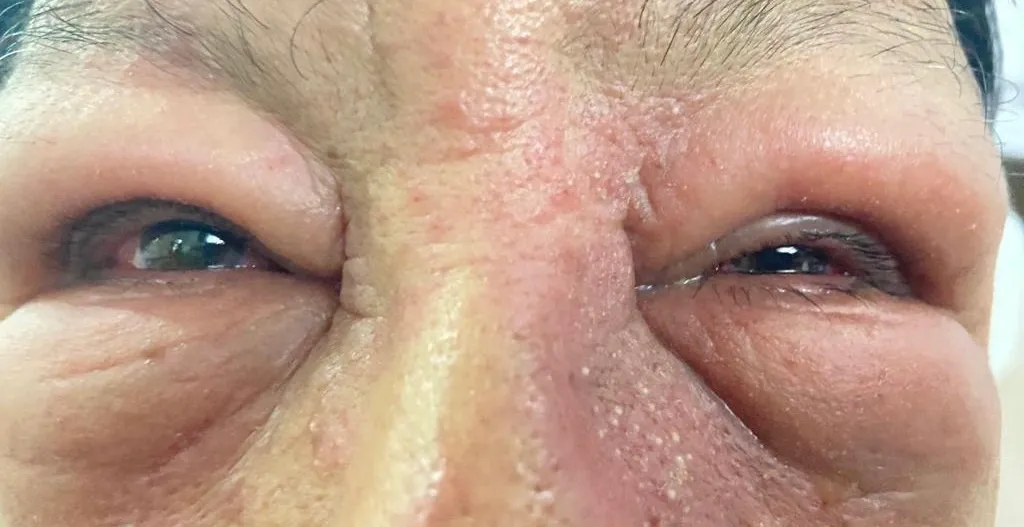Title: Understanding Phenylephrine Allergy in Eye Hospitals: Risks and Precautions
Introduction:
Eye examinations are crucial for maintaining good eye health and diagnosing potential conditions. One common procedure during eye check-ups is pupil dilatation, which involves using eye drops to enlarge the pupils for a better view of the inner structures of the eye. Phenylephrine, a widely used medication, is often employed for this purpose. However, in rare cases, individuals may experience an allergic reaction to phenylephrine, which can lead to complications. In this blog, we will delve into the topic of phenylephrine allergy in eye hospitals, its potential risks, and the precautions that can be taken.
Understanding Phenylephrine:
Phenylephrine is a medication that belongs to the class of sympathomimetic agents, commonly used as a nasal decongestant and a mydriatic agent to dilate pupils. It works by constricting blood vessels in the eye, allowing for a better examination of the internal structures. While it is generally considered safe and well-tolerated, allergic reactions to phenylephrine can occur, albeit rarely.
Phenylephrine Allergy Symptoms:
When a person is allergic to phenylephrine, exposure to the medication can trigger an immune system response, leading to various symptoms. These symptoms may include:
1. Redness, itching, or swelling of the eyes
2. Watery or teary eyes
3. Eye pain or discomfort
4. Blurred vision
5. Swelling or inflammation of the eyelids
6. Skin rash or hives around the eyes or face
7. Difficulty breathing or wheezing (in severe cases)
Precautions and Risk Management:
Eye hospitals and healthcare professionals take several precautions to minimize the risks associated with phenylephrine allergies. Here are some important measures:
1. Medical History Assessment: Prior to administering phenylephrine or any other medication, doctors typically inquire about the patient’s medical history, including any known allergies or previous adverse reactions to similar substances.
2. Allergy Testing: In some cases, individuals with a history of allergic reactions may be advised to undergo allergy testing to identify specific allergens, including phenylephrine.
3. Alternative Options: Eye care professionals can explore alternative methods or medications for pupil dilatation if phenylephrine allergy is suspected or confirmed.
4. Informed Consent: Patients should be provided with detailed information about the procedure, potential risks, and alternative options. Informed consent ensures individuals can make an educated decision after understanding the risks involved.
5. Emergency Preparedness: Eye hospitals are equipped to handle allergic reactions, with healthcare providers trained to recognize and manage such emergencies promptly. Emergency medications and equipment, including epinephrine (adrenaline), should be readily available.
Treatment:
Immediately report to the hospital as this drug reaction can be potentially severe.
1. usage of topical steroid, eyedrops and ointments.
2. oral tablets like Allegra or oral steroids like prednisolone.
3. In severe cases intravenous steroids may be used.
Important to note:
There is no way to find out which patient will have energy. So if you have such an allergy, you should report hospital staff. So that whenever you go for investigations of Eye, they will not use this particular salt for examination.
Conclusion:
Phenylephrine is a commonly used medication for pupil dilatation during eye check-ups. Although allergic reactions to phenylephrine are rare, it is crucial to be aware of the potential risks associated with this medication. Eye hospitals and healthcare professionals play a vital role in mitigating these risks by conducting thorough medical assessments, considering alternative options, obtaining informed consent, and being prepared to handle emergencies. If you suspect or experience any allergic symptoms after phenylephrine administration, it is essential to seek immediate medical attention to prevent further complications. Remember, open communication with healthcare professionals is key to ensuring a safe and effective eye examination experience for all patients.



